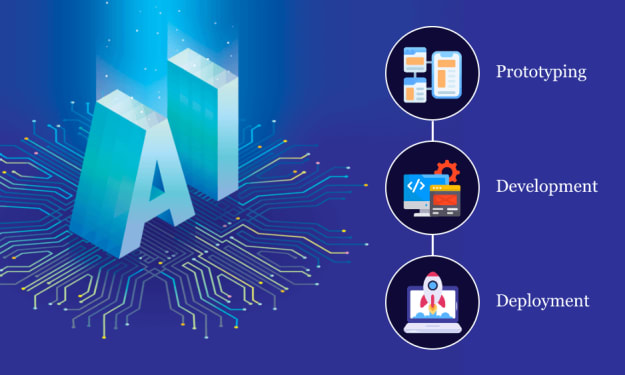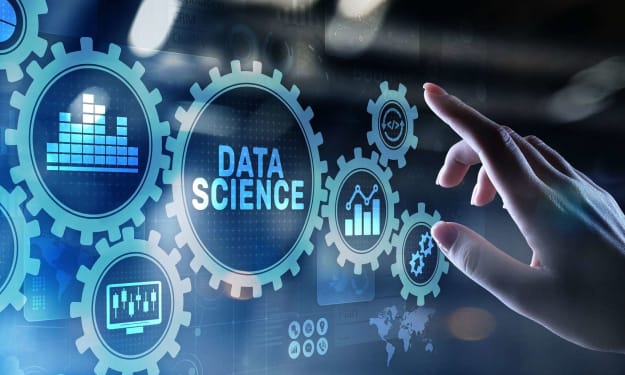Generative AI
Generative AI and Its Implications for the Future of Work.

Artificial intelligence (AI) has been a topic of discussion in the workforce for many years, with many experts predicting that it will have a significant impact on the way we work. In recent years, generative AI has emerged as a new and powerful form of AI that is capable of creating new data and content. In this article, we'll explore the role of generative AI in the future of work and its implications for the workforce.
What is Generative AI?
Generative AI is a type of machine learning that involves creating a model that can generate new data that is similar to the training data it was trained on. This is done by training the model on large amounts of data and then using that data to generate new data that has similar characteristics.
How is Generative AI Used in the Workplace?
Generative AI has a wide range of applications in the workplace, from content creation to process automation. Some of the most common applications of generative AI in the workplace include:
Content Creation: Generative AI can be used to create new content, such as articles, reports, and even entire books. This can save time and resources by automating the content creation process.
Design: Generative AI can be used to create new designs for products and services, such as logos, website layouts, and product packaging.
Process Automation: Generative AI can be used to automate repetitive tasks, such as data entry, scheduling, and customer service.
Benefits of Generative AI in the Workplace
The use of generative AI in the workplace offers several benefits, including:
Increased Efficiency: Generative AI can process large amounts of data quickly and efficiently, allowing organizations to automate repetitive tasks and streamline workflows.
Cost Savings: By automating tasks and processes, generative AI can help to reduce labor costs and increase productivity.
Improved Accuracy: Generative AI can help to reduce errors and improve accuracy by automating tasks that are prone to human error, such as data entry.
Challenges of Generative AI in the Workplace
Despite the benefits of generative AI, there are also several challenges that must be addressed, including:
Job Displacement: The automation of tasks and processes can lead to job displacement, particularly for workers in industries that rely heavily on manual labor.
Ethical Concerns: The use of generative AI raises ethical concerns, particularly around the ownership and control of the data that is used to train the algorithms.
Limited Creativity: While generative AI can generate new content and designs, it is still limited by the data it is trained on. This can limit its creativity and ability to generate truly unique content.
Implications for the Future of Work
As generative AI continues to evolve, it is likely to have a significant impact on the future of work. While the automation of tasks and processes may lead to job displacement, it is also likely to create new job opportunities in areas such as AI development, data analysis, and cybersecurity.
To prepare for the future of work, organizations will need to invest in retraining and reskilling programs to ensure that workers have the skills they need to adapt to the changing workforce. This may include programs that focus on data analysis, AI development, and other areas that are likely to see growth in the coming years.
In addition, it is important for organizations to adopt transparent and ethical practices in the use of generative AI. This can include being transparent about how data is collected and used, implementing rigorous data security measures, and regularly auditing algorithms for bias and inaccuracies.
Conclusion
Generative AI has the potential to transform the way we work, from automating repetitive tasks to creating new content and designs. While there are challenges and concerns around job displacement and ethical considerations, the benefits of generative AI in the workplace are clear. As technology continues to evolve, it is important for organizations to prepare for the future of work by investing in retraining and reskilling programs and adopting transparent and ethical practices in the use of generative AI.
Overall, the impact of generative AI on the future of work will depend on how organizations choose to adopt and implement the technology. While the use of generative AI may lead to job displacement in some industries, it also has the potential to create new job opportunities and increase efficiency and productivity in others. As such, it is important for organizations to approach the use of generative AI in the workplace with a clear understanding of its potential benefits and challenges, and a commitment to ethical and transparent practices.





Comments
There are no comments for this story
Be the first to respond and start the conversation.